The world is actually using significantly less of the US dollar than at the start of the century, while members of the BRICS group of emerging economies are openly accelerating their efforts to topple the greenback's dominance.
The “campaign” of de-dollarization is currently underway worldwide . The greenback is currently seeing an increase in rivals, as a series of new “companions” have emerged to declare their intention to derail its global value.
Is the US dollar's dominance on the brink?
De-dollarization speed increases rapidly
Global dollar reserves have fallen 14% since 2002, as BRICS and gold openly challenged the greenback's hegemony.
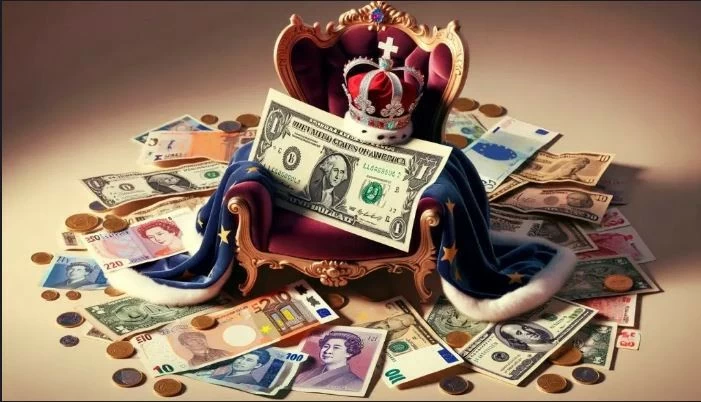 |
| De-dollarization is increasing rapidly, is the greenback's dominant position shaky? (Source: watcher.guru) |
The decline of the US dollar as the world’s reserve currency has been a hot topic of discussion for years – especially after the global financial crisis of 2007-2008. And while many have defended the greenback’s status as the world’s number one currency, arguing that talk of its imminent demise is overblown, data provided by the Atlantic Council shows that the world is actually using significantly less dollars than it did at the turn of the century.
According to the Atlantic Council's Dollar Dominance Monitor, the dollar's share of global reserves will be 58% in 2024, down 14% from 2002 - when it accounted for 72% of global reserves.
"The US dollar has served as the world's leading reserve currency since World War II. Today, the US dollar accounts for 58% of the value of foreign exchange reserves worldwide. The euro, the second most used currency, accounts for only 20% of foreign exchange reserves," the report said.
“In recent years, particularly since Russia launched its military campaign in Ukraine and the Group of Seven (G7) continued to escalate its use of financial sanctions, more and more countries have signaled their intention to diversify their reserves away from the US dollar,” researchers at the Atlantic Council said.
The pace of de-dollarization has increased in recent years, and researchers point to one development that has accelerated the trend – the rise of BRICS.
"Over the past two years, members of the BRICS group of emerging economies (originally Brazil, Russia, India, China and South Africa, recently added Egypt, Ethiopia, Iran and the United Arab Emirates; Saudi Arabia is considering joining) have been actively promoting the use of national currencies in trade and transactions," according to a report by the Atlantic Council.
During this same period, China has expanded its alternative payment systems to its trading partners and sought to increase the international use of the renminbi. In fact, of the BRICS currencies, the renminbi has the greatest potential to compete with the US dollar – as a trade and reserve currency.”
"BRICS is a potential challenge to the US dollar's position, due to its ability to increase transactions in the local currencies of its member economies, while the share of BRICS GDP in global GDP continues to increase rapidly," according to data released by the Atlantic Council.
Citing facts, the Atlantic Council Report pointed out two key factors that highlight the growing competitiveness of the alternative financial infrastructure to the US dollar, which China is trying to build - "Beijing's strengthening of bilateral swap relationships with BRICS partners and the addition of more members to the Cross-Border Interbank Payments System (CIPS) - which specializes in providing settlement services for RMB transactions".
The researchers found that, between June 2023 and May 2024, “CIPS added 62 additional members (individuals or organizations) participating in direct transactions, bringing the number to 142 direct members and 1,394 indirect members.”
Of course, SWIFT still dominates as an international payments system with more than 11,000 members. But because CIPS participants can settle transactions directly with each other without relying on SWIFT or the US dollar, traditional indicators of RMB usage may be understated.
But even so, and China has indeed made significant progress in adding partners to CIPS, the researchers said “The role of the US dollar as the primary global reserve currency remains secure in the short to medium term.”
Is the US dollar's position on the precipice?
“The US dollar continues to dominate foreign exchange reserves, trade bills and currency transactions globally. All potential rivals, including the euro, have only limited ability to challenge the US dollar in the near future,” according to experts at the Atlantic Council.
As for the development of an intra-BRICS payments system, the Atlantic Council notes that negotiations around such a system “are in their early stages, but members have reached bilateral and multilateral agreements with each other, focusing on cross-border wholesale central bank digital currencies (CBDCs) and currency swap arrangements.”
Such arrangements may be difficult to scale due to regulatory and liquidity issues, but over time, they could form the basis of a currency exchange platform that cannot be ignored, according to researchers.
Although Beijing is the biggest threat to the dollar's status, recent troubles in the world's second-largest economy, including its property market, have seen the yuan lose some of the ground it had gained against the dollar in foreign exchange reserves.
Actual data shows, "Although Beijing actively supports liquidity for the renminbi through swap lines, in the fourth quarter of 2023, the renminbi's share in global foreign exchange reserves has fallen to 2.3% from a peak of 2.8% in 2022."
Reserve managers may still be concerned that China's currency is a geopolitical risk, due to concerns about the Chinese economy, Beijing's stance on the Russia-Ukraine conflict, or rising tensions with the US and the G7, according to analysts at the Atlantic Council.
Based on the six “essential elements of a reserve currency” identified by the Atlantic Council, the RMB is still “in line” behind the Euro in the ranking of currencies most suitable to become a reserve currency after the USD.
The greenback still accounts for “9 out of 10 currency transactions” in international markets, which “reflects the strong intermediary role of the USD in the foreign exchange market, as it helps to minimize transaction costs for traders, but at the same time has reinforced the central position of the USD in financial networks.
In addition, in the context of the turmoil of the geopolitical situation and the global economy tending to decline, according to analysts at Morgan Stanley, it is undeniable that the USD still stands firm amid all the chaos because of a certain reliability that it has had for a long time.
In addition to China's currency openly swiping the US dollar's reserve role, the Atlantic Council study also points out - gold also appears to be a popular commodity among BRICS members. "Emerging markets have driven the recent surge in gold purchases. Since 2018, all BRICS members have increased their gold holdings at a faster rate than the rest of the world, despite record gold prices."
However, due to its undeniable strengths, along with the significant support of the world's largest economy (the US), "the USD is still the king of currencies, and there really isn't any "equal" competitor," according to Michael Zezas, Director of Public Policy at Morgan Stanley.
Source: https://baoquocte.vn/hoi-dong-dai-tay-duong-toc-do-phi-usd-hoa-tang-nhanh-bat-ngo-brics-de-doa-vi-tri-thong-tri-cua-dong-bac-xanh-283180.html










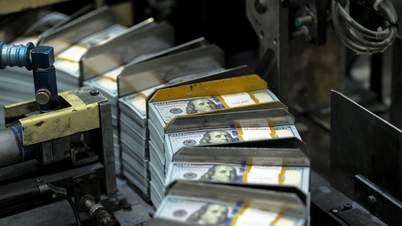




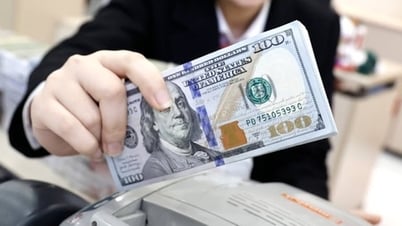






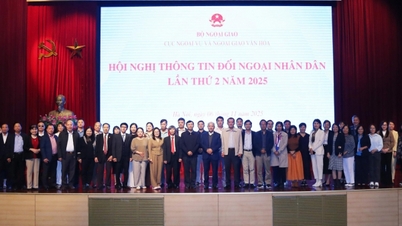







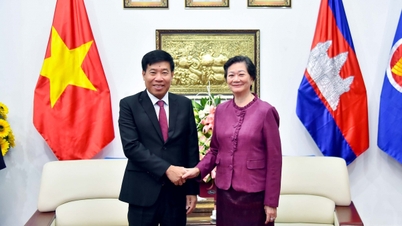


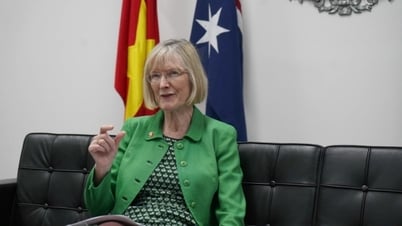
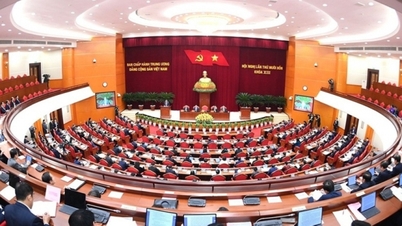


![[Photo] Da Nang: Hundreds of people join hands to clean up a vital tourist route after storm No. 13](https://vphoto.vietnam.vn/thumb/1200x675/vietnam/resource/IMAGE/2025/11/07/1762491638903_image-3-1353-jpg.webp)












































































Comment (0)